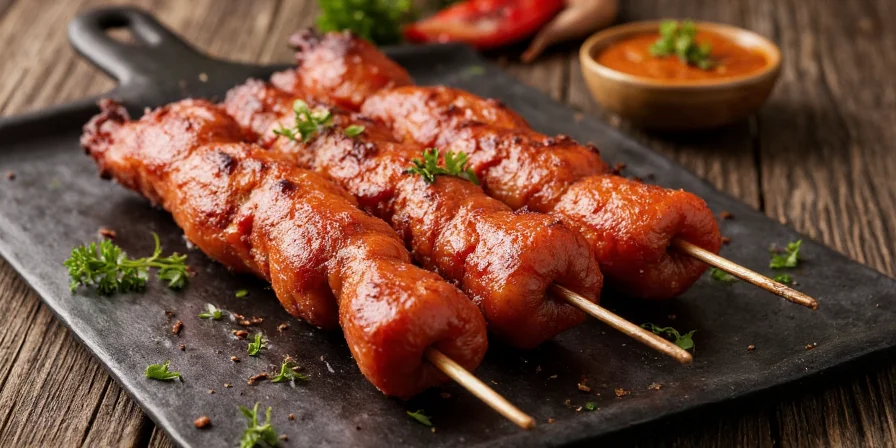Exploring Suya: The Spicy Delight of Nigeria
When it comes to street food that tantalizes the taste buds, few dishes can compare to suya. Originating from Nigeria, this spicy meat skewer has taken the culinary world by storm, earning its place in the hearts (and stomachs) of food enthusiasts around the globe. In this blog, we will dive deep into the origins, preparation methods, variations, and cultural significance of suya, as well as tips on how to enjoy this mouth-watering dish.
The Origins of Suya
Suya is believed to have originated in the northern regions of Nigeria, particularly among the Hausa people. Historically, it is said that nomadic herders would cook meat over open fires, seasoning it with local spices, which laid the groundwork for what we now recognize as suya.
Although suya has its roots in Nigeria, its popularity has spread to other West African countries such as Cameroon, Ghana, and Benin, each adding their unique twist to the dish. Today, suya stands as a symbol of West African culinary heritage, enjoyed by locals and tourists alike.
Preparation Methods
The preparation of suya is an art form. Here’s a closer look at how this delectable dish is made:
- Choosing the Meat: Traditionally, suya is made with beef, but chicken, goat, and even fish can be used.
- Marinating: The meat is marinated in a mixture of ground peanuts, spices (such as cayenne pepper, ginger, and garlic), and salt. This marinade imparts a rich flavor and helps to tenderize the meat.
- Skewering: The marinated meat is then skewered on wooden or metal sticks.
- Grilling: The skewers are grilled over an open flame or charcoal, allowing the meat to absorb the smoky flavor while cooking to perfection.
- Serving: Suya is often served with sliced onions, tomatoes, and spicy pepper sauce.
Ingredients for Suya
| Ingredient | Quantity |
|---|---|
| Beef (or alternative meat) | 500g |
| Ground peanuts | 100g |
| Cayenne pepper | 2 tablespoons |
| Ginger (grated) | 1 tablespoon |
| Garlic (minced) | 2 cloves |
| Salt | to taste |
| Wooden skewers | as needed |
Variations of Suya
While traditional suya is beloved, there are numerous variations that reflect regional tastes and customs. Here are a few popular ones:
- Chicken Suya: A lighter alternative made with chicken, often marinated in similar spices.
- Goat Suya: This version uses goat meat, which is particularly popular in parts of Nigeria.
- Fish Suya: A coastal variation that utilizes fish, marinated and grilled similarly.
- Vegetable Suya: For vegetarians, skewered vegetables like bell peppers, onions, and mushrooms can be marinated and grilled to create a delicious meat-free option.
Accompaniments
Suya is often served with a variety of sides that complement its rich flavors. Some common accompaniments include:
- Onions: Thinly sliced onions add a crisp texture and sharp flavor.
- Tomatoes: Fresh tomato slices provide a juicy contrast.
- Pepper Sauce: A spicy sauce made from peppers, adding heat and flavor.
- Yam: Fried or boiled yam is a popular side dish that pairs well with suya.
Cultural Significance of Suya
Suya is more than just a delicious dish; it is a cultural icon in Nigeria. Often enjoyed as a street food delicacy, suya vendors can be found in bustling markets and street corners, serving up this spicy treat to locals and tourists. The dish is synonymous with gatherings, celebrations, and late-night snacking, often enjoyed with friends over drinks.
Suya has also found its way into modern restaurants and food festivals, where chefs experiment with new interpretations while staying true to its roots. This fusion of tradition and innovation keeps the spirit of suya alive, making it a beloved dish in both local and international cuisine.
How to Enjoy Suya
To truly appreciate suya, it’s important to understand the best ways to enjoy it. Here are some tips:
- Pair with Drinks: Suya goes well with chilled drinks, such as palm wine or beer, enhancing the overall experience.
- Cook It Yourself: Try making suya at home for a fun and delicious experience. You can adjust the spice levels to your preference!
- Explore Local Variants: If you're traveling in West Africa, be sure to try local variations of suya to experience the diverse flavors.
Conclusion
In conclusion, suya is not just a dish; it is a celebration of culture, flavor, and community. Its spicy, smoky goodness has garnered attention far beyond Nigeria, making it a beloved dish in the global culinary scene. Whether enjoyed at a street stall or made at home, suya is a must-try for anyone seeking to explore the vibrant and diverse world of global spice traditions.

As you embark on your culinary adventures, don’t miss the chance to indulge in this spicy delight. Happy tasting!










 浙公网安备
33010002000092号
浙公网安备
33010002000092号 浙B2-20120091-4
浙B2-20120091-4